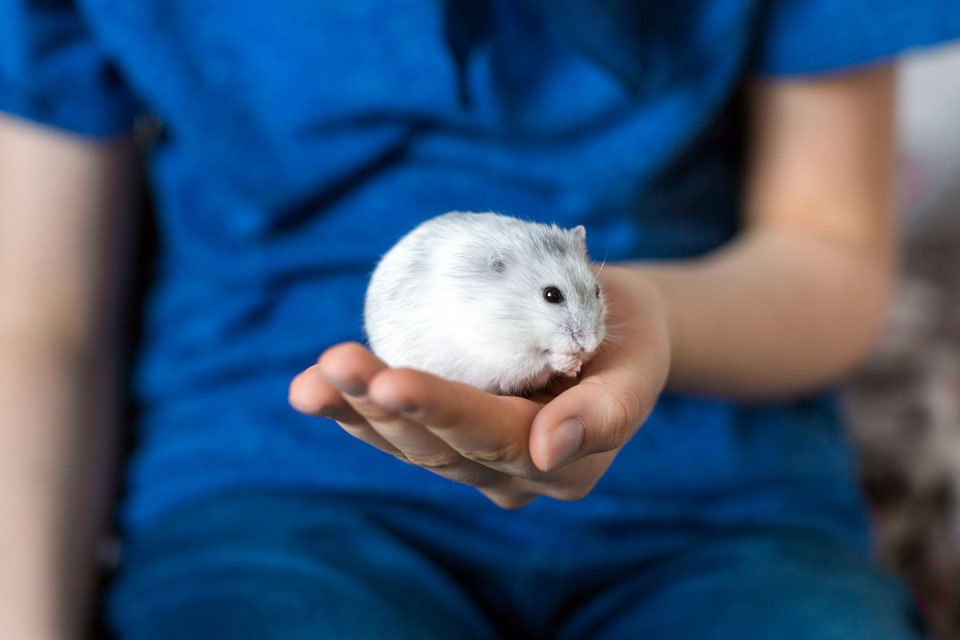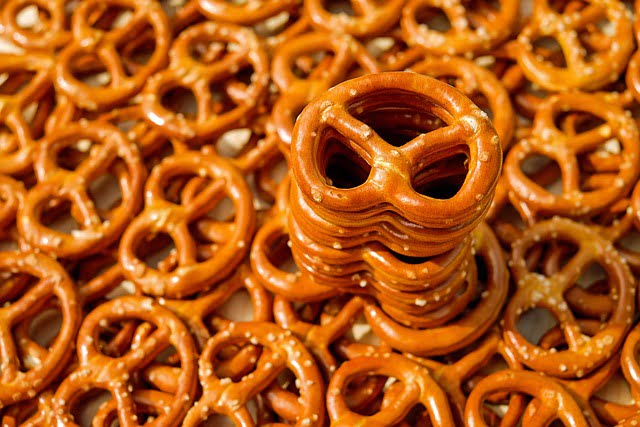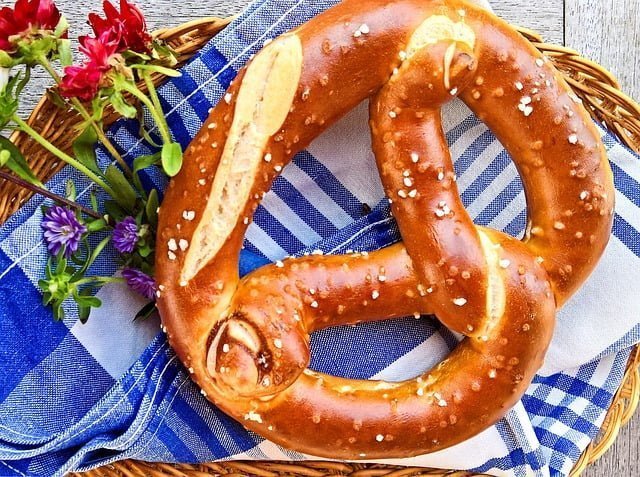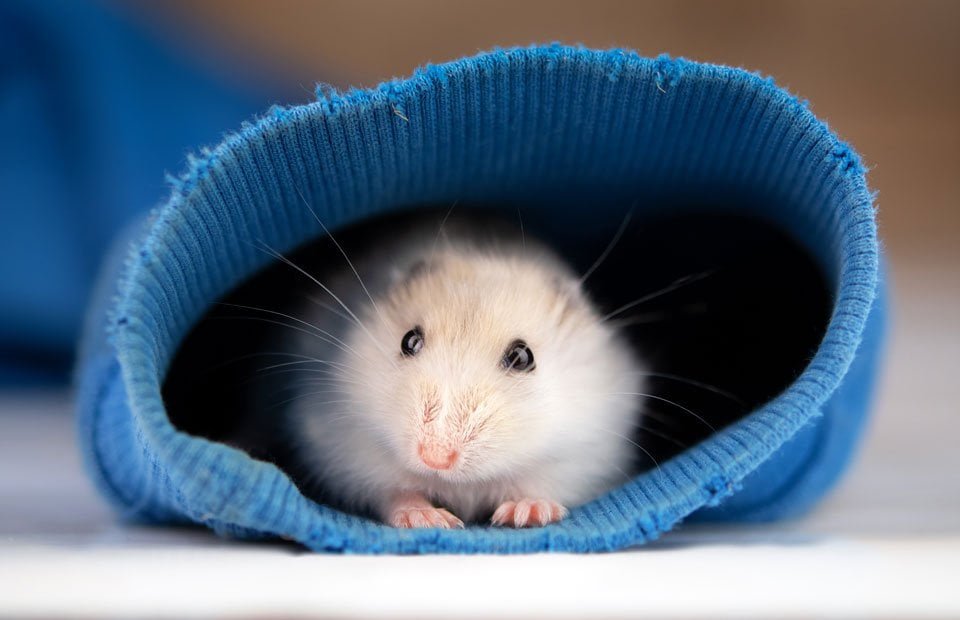Hamsters are small, adorable pets known for their love of snacks. As a pet owner, it’s natural to wonder if your furry friend can enjoy some of your favorite treats, like pretzels. However, it’s important to consider the dietary needs of hamsters before introducing any new food into their diet. In this article, we will explore the dietary needs of hamsters and answer the question: Can hamsters eat pretzels as a treat?

Table of Contents
The Dietary Needs of Hamsters
Hamsters are omnivores, which means they can eat both plant-based and animal-based foods. In their natural habitat, hamsters primarily consume seeds, grains, vegetables, and fruits. A balanced diet for a pet hamster typically consists of commercial hamster pellets or a mix of seeds and grains, supplemented with fresh fruits and vegetables. It’s important to provide them with a variety of foods to ensure they receive all the necessary nutrients.
While hamsters can enjoy occasional treats, such as small pieces of fruits or vegetables, it’s crucial to be mindful of the types of food you give them. Some human foods can be harmful or unhealthy for hamsters, including foods high in sugar, fat, or salt.
Can Hamsters Eat Pretzels as a Treat?
When it comes to pretzels, it’s best to avoid giving them to your hamster. Pretzels are typically high in salt and may contain added seasonings or flavorings that can be harmful to your pet. Hamsters have sensitive digestive systems and can easily become dehydrated if they consume too much salt.
Excessive salt intake can lead to health issues such as electrolyte imbalances, kidney problems, and even organ damage in extreme cases. Additionally, the dry texture of pretzels can be hard for hamsters to chew and digest properly.
While occasionally giving your hamster a tiny piece of unsalted pretzel may not cause immediate harm, it’s important to remember that hamsters have specific dietary requirements. It’s always recommended to stick to foods that are known to be safe and beneficial for their overall health and well-being.
Instead of pretzels, there are many other healthy treats you can offer your hamster. Some suitable options include small pieces of fresh fruits like apples, pears, or bananas, as well as vegetables such as carrots, cucumbers, or bell peppers. Just remember to introduce new foods gradually and in small portions to avoid upsetting their digestive system.
In conclusion, while hamsters have a flexible diet, it’s crucial to consider their specific dietary needs before introducing any new treats. Pretzels, with their high salt content and potential seasoning additives, are not recommended for hamsters. Instead, opt for healthier options that are safe and suitable for their digestive system. Always consult with a veterinarian if you have any concerns about your hamster’s diet or health.

Nutritional Content of Pretzels
When it comes to feeding your adorable hamster, it’s essential to consider its nutritional needs. Hamsters thrive on a balanced diet that includes a variety of seeds, grains, fruits, and vegetables. However, when it comes to pretzels, which are a popular snack among humans, it’s crucial to understand their nutritional content and potential risks before offering them to your furry friend.
Understanding the Ingredients in Pretzels
Pretzels typically contain a few key ingredients, including flour, yeast, salt, and sometimes sugar or spices. While these ingredients may not be harmful to humans, they may not be suitable for hamsters due to their specific dietary requirements.
Flour is a common ingredient in pretzels, usually made from wheat. However, hamsters require a diet that is rich in fiber and protein, which can be found in their regular food. Wheat flour does not provide significant benefits for the health of your hamster.
The salt content in pretzels can be quite high, and excess salt intake can be harmful to hamsters. Hamsters have very small bodies and are sensitive to high salt levels, which can lead to dehydration and other health issues if consumed in large quantities.
Moreover, sugar and spices, such as cinnamon or onion powder, may also be present in flavored pretzels. These ingredients are unnecessary for hamsters and can potentially cause digestive problems and upset their sensitive stomachs.
Potential Risks and Health Concerns of Feeding Pretzels to Hamsters
Feeding pretzels to your hamster can pose several risks and health concerns. Here are a few key points to consider:
- Nutritional Imbalance: Pretzels lack the necessary nutrients that hamsters require for their overall health and wellbeing. Feeding them pretzels regularly can lead to a nutritional imbalance and deficiencies.
- High Salt Intake: As mentioned earlier, pretzels contain high levels of salt. Hamsters have a low tolerance for salt, and excessive salt intake can cause dehydration and lead to kidney problems.
- Potential Digestive Issues: Hamsters have delicate digestive systems, and the ingredients in pretzels may not be easily digestible for them. This can result in diarrhea, bloating, or abdominal discomfort.
- Weight Gain: Pretzels are high in carbohydrates and calories. Feeding your hamster excessive amounts of pretzels can contribute to weight gain and obesity, which can lead to other health issues.
- Choking Hazard: Pretzels are hard and crunchy, which can pose a risk of choking for small animals like hamsters. Their small size and delicate throat make them particularly susceptible to choking accidents.
Given these potential risks and health concerns, it is best to avoid feeding pretzels to your hamster. Instead, focus on providing them with a balanced diet of hamster-specific food that meets their nutritional requirements. A healthy diet consisting of fresh vegetables, fruits, seeds, and grains will ensure their overall wellbeing and longevity.
Remember to always consult with a veterinarian who specializes in small animals for specific dietary recommendations for your hamster. They can provide you with guidance tailored to your individual pet’s needs and help you give them the best possible care.

Suitable Alternatives to Pretzels
Hamster-Friendly Snack Options
As a responsible hamster owner, you may be wondering about suitable alternatives to pretzels for your furry friend. It’s essential to provide your hamster with a balanced diet that meets their nutritional needs. While pretzels may be enjoyed by humans, they are not suitable for hamsters due to their high salt content and potential digestive issues. However, there are plenty of hamster-friendly snack options available that you can offer as treats.
When selecting snacks for your hamster, it’s important to choose options that are safe, healthy, and appropriate for their small size. Here are some alternatives to pretzels that you can consider:
- Fresh Fruits and Vegetables: Hamsters love a variety of fresh fruits and vegetables, which are rich in vitamins, minerals, and fiber. Some safe options include carrots, cucumbers, apples, bananas, and leafy greens like spinach or kale. Remember to introduce new foods gradually and in small quantities to avoid digestive issues.
- Whole Grains: Hamsters can enjoy small portions of whole grains as a treat. Safe options include cooked pasta, oats, brown rice, or unsalted whole grain crackers. These provide energy and fiber without the excess salt found in pretzels.
- Nuts and Seeds: Small amounts of nuts and seeds can be given as occasional treats. Safe options include unsalted sunflower seeds, pumpkin seeds, or almonds. Remember to remove the shells and only offer small portions to prevent overeating.
- Hamster-Specific Treats: Pet stores offer a wide range of specially formulated hamster treats that are designed to meet their nutritional needs. Look for treats that are made from natural ingredients and avoid those that contain artificial additives, sugars, or high-fat content.
Introducing Healthy and Safe Treats into Your Hamster’s Diet
When introducing new treats into your hamster’s diet, it’s essential to do so gradually. Start by offering small portions of the new snack and monitor your hamster’s reaction. If they show any signs of digestive upset or discomfort, it’s best to discontinue that particular treat. Remember that treats should only make up a small portion of your hamster’s overall diet, and their primary food should consist of specially formulated hamster pellets.
Additionally, ensure that the treats you offer are fresh and free from any contaminants. Wash fruits and vegetables thoroughly before giving them to your hamster, and avoid using any seasoning or sauces. It’s also crucial to provide fresh water at all times to keep your hamster hydrated.
By introducing a variety of healthy and safe treats into your hamster’s diet, you can provide them with enrichment, stimulate natural foraging behavior, and strengthen the bond between you and your pet.

Conclusion
While pretzels are not suitable for hamsters, there are plenty of alternative snack options that you can offer as treats. Fresh fruits and vegetables, whole grains, nuts and seeds, and specially formulated hamster treats are all excellent choices. Remember to introduce new foods gradually, monitor your hamster’s reaction, and provide a balanced diet that meets their nutritional needs. By offering a variety of safe and healthy snacks, you can keep your hamster happy and well-nourished.





